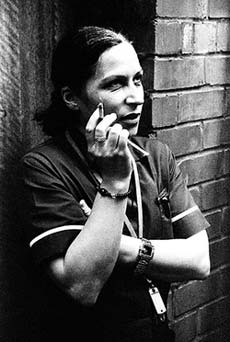fitness news
![]() ,
,![]()
Font size Women’s Health
Smoking among physicians and nurses in Bosnia and Herzegovina
– Reported, January 26, 2013
 Anti-smoking campaigns have not yet been introduced in Bosnia and Herzegovina (BiH) to any significant degree, where smoking rates shortly after the Balkan conflict were 48% for adults . Another WHO study in BiH estimated that 50% of female physicians smoked in 1996.
Anti-smoking campaigns have not yet been introduced in Bosnia and Herzegovina (BiH) to any significant degree, where smoking rates shortly after the Balkan conflict were 48% for adults . Another WHO study in BiH estimated that 50% of female physicians smoked in 1996.
Given the important role that doctors and nurses have in educating their patients about good health practices, the smoking figure for physicians is disturbing. Doctors and nurses are often seen as symbols of good health practice . Moreover, they can, and should, play a crucial role in influencing the smoking habits of their patients. In particular, family physicians have a key role in counselling their patients on smoking cessation strategies; for example, they are the first point of medical contact for most patients, they have an ongoing relationship with their patients, and they come into contact with a large number of smokers, especially in countries such as Bosnia and Herzegovina where smoking rates are high.
The main objectives of this study are to determine smoking behaviour and rates among Family Medicine (FM) doctors and nurses in Bosnia and Herzegovina; assess the knowledge and attitudes of the FM doctors and nurses regarding adverse health risks of smoking; and determine how well prepared the health professionals currently feel with respect to counselling their patients on smoking cessation strategies.
It is to be expected that health professionals reflect the culture and behaviour in which they live, and so the rate of smoking among health professionals will vary in a similar manner as those adults in the general population. So, the rate of smoking among health professionals in Bosnia and Herzegovina is not surprising given that overall smoking rates were reported around 48% for adults . The rates are particularly high, however, compared to other European countries.
Counselling by health professionals on smoking cessation is crucial if their patients are going to quit smoking. The relatively high rates of health professionals having received formal training reflects the sampling frame of participants who are in a primary care specialization program. And indeed, almost 90% felt very or somewhat well prepared to counsel their patients on smoking cessation. However, it may be possible that health professionals not actively counselling patients on smoking cessation may underestimate the difficulty of successfully supporting their patients through to smoking cessation . More formal training about smoking cessation strategies through continuing education of health professionals in Bosnia and Herzegovina may be justified.
This study indicates that almost half of all Family Medicine health professionals in Bosnia and Herzegovina are smokers. Given the important role physicians have in counselling their patients on smoking cessation techniques, these rates are disturbing and indicate a severe public health problem throughout the country. Steps need to be taken at a national level to address the fight against tobacco.
CREDITS:
http://w21.biomedcentral.com/
Geoffrey Hodgetts, Teresa Broers and Marshall Godwin
For more Bosnia and Herzegovia News Click Here